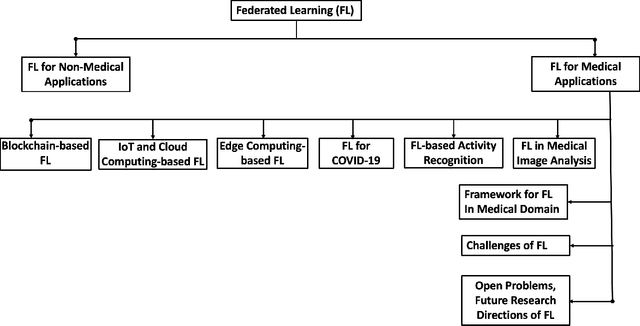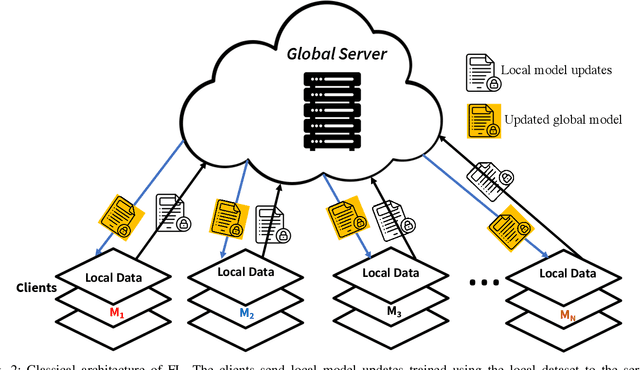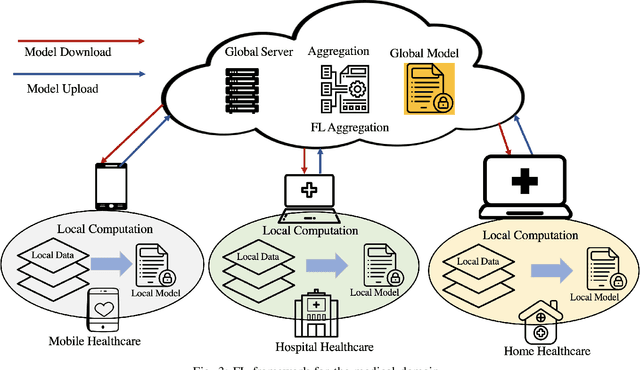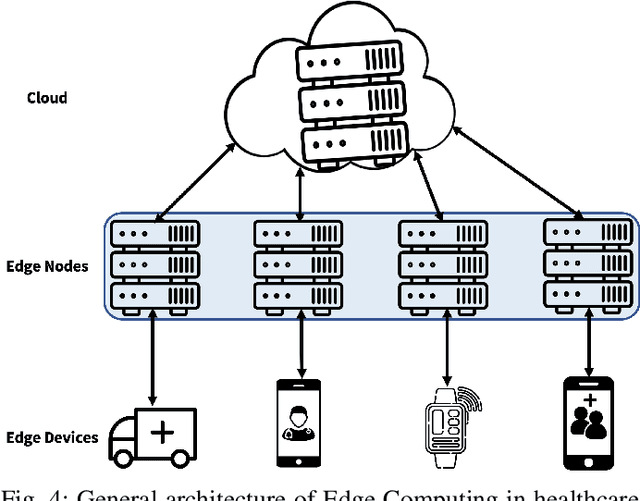Federated Learning for Medical Applications: A Taxonomy, Current Trends, Challenges, and Future Research Directions
Paper and Code
Aug 15, 2022



With the advent of the IoT, AI, and ML/DL algorithms, the data-driven medical application has emerged as a promising tool for designing reliable and scalable diagnostic and prognostic models from medical data. This has attracted a great deal of attention from academia to industry in recent years. This has undoubtedly improved the quality of healthcare delivery. However, these AI-based medical applications still have poor adoption due to their difficulties in satisfying strict security, privacy, and quality of service standards (such as low latency). Moreover, medical data are usually fragmented and private, making it challenging to generate robust results across populations. Recent developments in federated learning (FL) have made it possible to train complex machine-learned models in a distributed manner. Thus, FL has become an active research domain, particularly processing the medical data at the edge of the network in a decentralized way to preserve privacy and security concerns. To this end, this survey paper highlights the current and future of FL technology in medical applications where data sharing is a significant burden. It also review and discuss the current research trends and their outcomes for designing reliable and scalable FL models. We outline the general FL's statistical problems, device challenges, security, privacy concerns, and its potential in the medical domain. Moreover, our study is also focused on medical applications where we highlight the burden of global cancer and the efficient use of FL for the development of computer-aided diagnosis tools for addressing them. We hope that this review serves as a checkpoint that sets forth the existing state-of-the-art works in a thorough manner and offers open problems and future research directions for this field.
 Add to Chrome
Add to Chrome Add to Firefox
Add to Firefox Add to Edge
Add to Edge